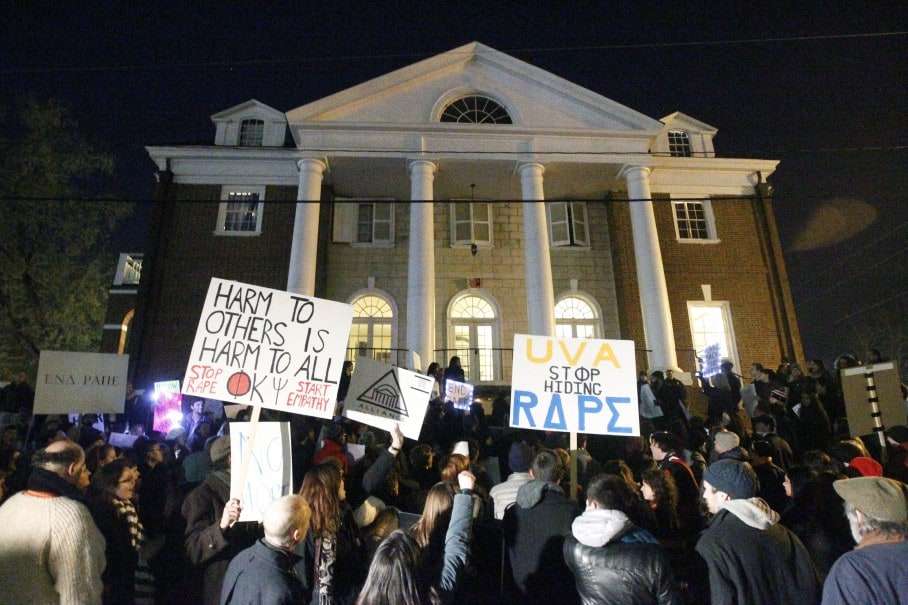The Volokh Conspiracy
Mostly law professors | Sometimes contrarian | Often libertarian | Always independent
"Key elements of Rolling Stone's U-Va. gang rape allegations in doubt"

I haven't been following the controversy about this story closely, but this Post article by T. Rees Shapiro [UPDATE: link fixed] struck me as very much worth reading. Here, by the way, is today's Rolling Stone note to readers about the story:
To Our Readers:
Last month, Rolling Stone published a story titled "A Rape on Campus" by Sabrina Rubin Erdely, which described a brutal gang rape of a woman named Jackie at a University of Virginia fraternity house; the university's failure to respond to this alleged assault - and the school's troubling history of indifference to many other instances of alleged sexual assaults. The story generated worldwide headlines and much soul-searching at UVA. University president Teresa Sullivan promised a full investigation and also to examine the way the school responds to sexual assault allegations.
Because of the sensitive nature of Jackie's story, we decided to honor her request not to contact the man she claimed orchestrated the attack on her nor any of the men she claimed participated in the attack for fear of retaliation against her. In the months Erdely spent reporting the story, Jackie neither said nor did anything that made Erdely, or Rolling Stone's editors and fact-checkers, question Jackie's credibility. Her friends and rape activists on campus strongly supported Jackie's account. She had spoken of the assault in campus forums. We reached out to both the local branch and the national leadership of the fraternity where Jackie said she was attacked. They responded that they couldn't confirm or deny her story but had concerns about the evidence.
In the face of new information, there now appear to be discrepancies in Jackie's account, and we have come to the conclusion that our trust in her was misplaced. We were trying to be sensitive to the unfair shame and humiliation many women feel after a sexual assault and now regret the decision to not contact the alleged assaulters to get their account. We are taking this seriously and apologize to anyone who was affected by the story.
Will Dana
Managing Editor
I should also note that Richard Bradley, a former editor at George - who, having been once bitten by Stephen Glass's faked articles, is now twice shy - was either the first journalist or among the first to suggest that there was something amiss about the Rolling Stone piece. His post was published on Nov. 24, 2014, five days after the original Rolling Stone article.


Show Comments (0)